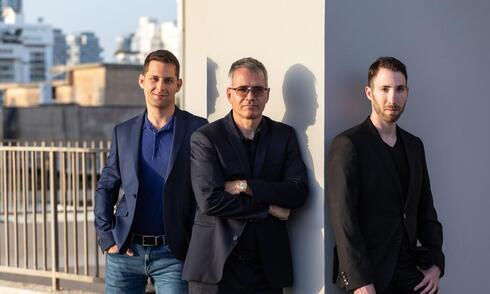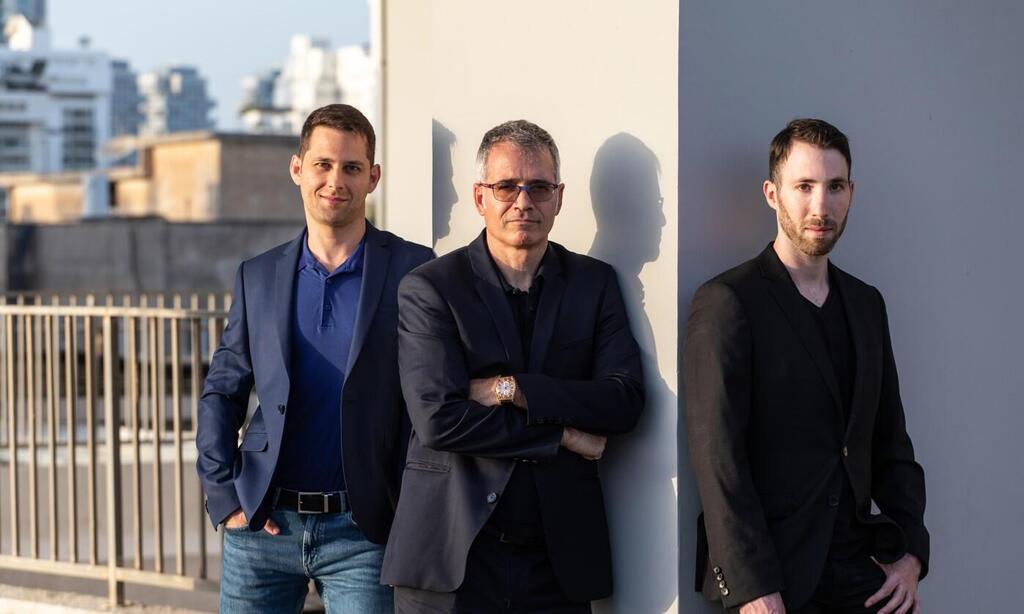
What’s next?
"It is increasingly crucial to ensure that Seed capital can sustain a startup for at least 24 months"
Nathan Shuchami, Managing Partner at Hyperwise Ventures, spoke with CTech as part of the project “Where do we go from here?”, which aims to examine how the Israeli VC industry is dealing with the crisis in the sector
“From the perspective of Seed investors we can find some positive elements that emerge from the crisis we are experiencing in recent times, like realistic, down to earth valuations for the startups, or higher availability of relevant talents and professional staff,” says Nathan Shuchami, Managing Partner at Israeli Hyperwise Ventures.
Shuchami spoke with CTech as part of the project “Where do we go from here?” which aims to examine how the Israeli VC industry is dealing with the crisis in the sector.
Over recent months, we have witnessed one of the most serious crises to hit Israeli high-tech in recent decades: on the one hand, a global economic slowdown, and on the other hand, local political turmoil that sent the industry into deep stagnation. Since the general assumption is that the situation will not change in the near future, the question hovering over the industry is what can still be done to minimize the damage to the Israeli high-tech industry and how should we act so that when the crisis passes - all those involved can take a leap forward. Therefore, as part of this on-going project, we spoke with senior executives from the local venture capital industry to try and understand from them what needs to be done now to justify the reputation Israeli high-tech has earned as being creative, adaptive, innovative, agile and cunning.
1 View gallery


Nathan Shuchami (center) with fellow Hyperwise founders Ben Omelchenko and Aviv Gafni.
(Photo: Avishag Shaar-Yashuv )
Name of fund/funds: Hyperwise Ventures
Total sum of fund: Fund 1: $70M, Fund 2: $120M
Partners: Ben Omelchenko, Aviv Gafni, Nathan Shuchami
Notable/select portfolio companies: Argon Security, Pontera, DealTale, Ionix, Kubiya, Armo Security, Speedb, Entro Security, ECL
“Unless there is a near term, positive resolution to the current Israeli political instability, Israeli high tech will continue to deteriorate”
How is the current crisis different from the ones we experienced in previous decades?
Shuchami : “The 2008 crisis was mainly related to an objective economic crisis that occurred in the U.S., which started around the U.S. banking system, and has affected the entire global economy, consumers included, hurting also the high-tech arena. The current crisis is resulted primarily by the high-tech bubble burst (inflated valuations, funding of non-viable projects, SPACs, etc.) that reached its peak in mid-2022. The obvious and much expected dissolution, together with the increase in interest rates (and maybe also the continuation of the war in the Ukraine) are the main factors behind the current crisis, which is therefore much more similar to the 2002 dot com bubble burst.”
How long do you think the global economic slowdown will last?
“It is very difficult to predict, however trying to guess – the positive notion would probably start showing in Q1 or maybe even Q2 of 2024.”
Are there positive sides to this crisis?
"From a Seed investor perspective, the “positive” element of the current crisis are: Realistic, down to earth valuations; higher availability of relevant talents and professional staff; More realistic salaries for professional staff, which can contribute to longer runways of the employing startups; and better signal to noise ratio on the deal flow side – potential entrepreneurs are now reluctant to seek funding for “iffy”, half baked ideas.”
When the local crisis ends - will the Israeli sector continue from the point where the crisis started (let's say January 2023)?
“We do not think that when the crisis is over the Israel high tech arena will continue from the same point it was when the crisis started. We believe that for the upcoming 3-5 years valuations will continue to be restrained, and investors of A, B and C rounds will continue to require actual meaningful results (primarily revenues). Unless there is a near term, positive resolution to the current Israeli political instability, the Israeli high tech arena will continue to deteriorate.”
What are the critical points in which Israeli high-tech was damaged?
“The main damage has happened in the following areas. The vast majority of new startups are now incorporating in the U.S., together with their IP; Some U.S. investors are conditioning their investment in A rounds on moving the IP to the U.S.; Significant decrease in investments of foreign capital and U.S. based VCs in Israel; In the next 12 months we will probably see a large number of startups, some of them with promising technology – shutting down.”
How should each and every one of these problems be handled?
“The current political crisis in Israel must resolve quickly with a broad consensus within Israeli society in order to resume stability and encourage foreign investors to increase their level of investment in the Israeli high tech arena.
“The Israeli Innovation Authority should consider initiating support programs for startups that need to cross the chasm between Seed and A rounds (based on firm criteria, of course).
“Local VCs should increase their investment activity (especially in A and B rounds) to fill the gap created by the decrease of foreign investments.”
How can you take advantage of this interim period (until the crisis passes) to prepare better for the reawakening when it arrives.
“We believe there are still excellent Seed round opportunities as before the crisis, and we plan to continue making 2-3 Seed investments per year. Historically, some of the most lucrative investment opportunities have emerged during times of crisis. In contrast to pre-crisis times, it has become increasingly crucial to ensure that the Seed capital raised can sustain a startup for at least 24 months until the crisis subsides. We are actively collaborating with our startups to develop appropriate budgets, strengthening their go-to-market strategies and sales traction.”
What are the critical points in which the Israeli venture capital industry was hit? “Investor confidence: Clearly, low investor confidence makes fundraising more difficult, constraining the available capital for startups.
“Returns on investments and write-offs: Due to the crises and inflated valuations, many growth-stage startups face one of three options: raising funds in a down/flat round, pursuing mergers and acquisitions, or closing down. These scenarios predominantly have negative consequences for venture capital firms that invest in Series A and subsequent rounds.
“Startups confronting challenges in conducting business: Certain industries have been more severely impacted by the crisis and the high-interest rate environment due to their specific nature. In addition, the tendency for many buyers to freeze their budgets complicates the ability of startups to generate consistent and predictable revenue streams.”
How should the venture capital industry conduct itself in the immediate and medium term?
"When it comes to investors, they should maintain open and transparent communication regarding portfolio performance, risks, and opportunities.
"In regard to entrepreneurs, they should offer mentorship and guidance to help entrepreneurs navigate challenges and develop resilience. Support pivots and adaptation to new market realities as needed.
"As far as employees, they should promote the creation of focused and cohesive teams, emphasizing quality over quantity. Ensure that each new hire contributes to business growth, and strive to attract the most exceptional talent available.
- With the specific sectors in which you as a VC focus:
"Regarding specific sectors in which the VC focuses, they should actively promote innovation and the adoption of new technologies to drive growth and competitiveness. Closely examine the budget and financial runway, and provide support to founders in crafting strategic financial plans that will help them navigate the crisis and generate substantial revenues.
"Concentrate on companies with robust fundamentals: In the present climate, venture capitalists must prioritize companies with solid foundations. This entails investing in businesses that have a clear market demand, an exceptional management team, and a sustainable business model.
"With the government, they should participate in the development of support programs and policies that address the needs of startups and the venture capital industry."












